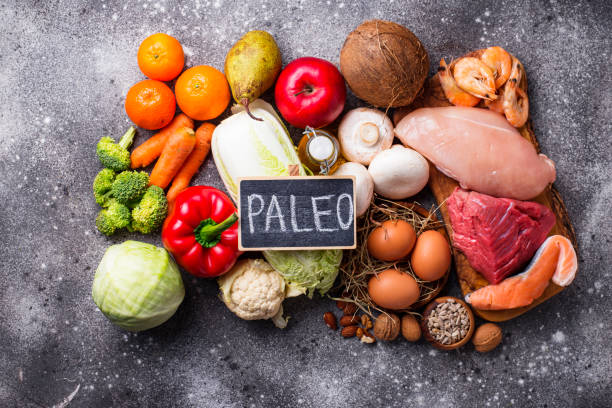Creatine Supplementation and Dietary Considerations
 Creatine and Dietary Restrictions: A Comprehensive Guide for Every Lifestyle
Creatine and Dietary Restrictions: A Comprehensive Guide for Every Lifestyle
Wondering if creatine fits with your diet? Whether you’re vegan, keto, gluten-free, or have other dietary needs, this guide explains how creatine works with various restrictions so you can make an informed choice.
Why You Should Care About Creatine and Dietary Restrictions
Creatine is one of the most well-researched supplements, widely known for enhancing strength and boosting recovery.
For those with specific dietary restrictions, however, knowing how creatine fits within their guidelines is essential for both safety and effectiveness.
This article answers common questions about using creatine within dietary restrictions and provides trusted references for further reading.

What is Creatine?
Creatine is a natural compound found in muscle cells that helps produce energy, especially during intense exercise.
Most commonly taken as a supplement, creatine is known to enhance athletic performance and support muscle recovery.
Creatine monohydrate is the most popular form due to its safety profile and effectiveness in research studies.
How Does Creatine Work?
Creatine increases phosphocreatine stores in muscles, which in turn supports ATP production, a key energy source for quick, high-intensity efforts.

Is Creatine Vegan-Friendly?
Source of Creatine
Most creatine supplements are synthetic, making them suitable for vegans. Look for products labeled "synthetic" or "vegan-certified" to ensure they align with vegan dietary needs.
Vegan Certifications and Labels
Vegan-certified creatine options are available from several brands.
Certifications from reputable organizations like the Vegan Society provide assurance that the product does not contain animal-derived ingredients.
Creatine for Vegetarians
Vegetarians may benefit from creatine supplementation, as creatine is primarily found in meat. Studies suggest that vegetarians, who lack significant dietary sources of creatine, may experience noticeable benefits from supplementation.

Using Creatine on a Keto Diet
Creatine is keto-friendly as it contains no carbs and does not impact blood sugar levels.
It may even support muscle preservation, which can be beneficial on a keto diet, where carb restrictions may affect muscle mass.

Is Creatine Gluten-Free?
Creatine monohydrate itself is gluten-free. However, flavored creatine supplements or products with fillers could contain gluten.
Look for a “gluten-free” label to confirm, especially if you have a gluten intolerance.

Creatine for Those with Lactose Intolerance
Most pure creatine monohydrate powders are lactose-free. However, avoid flavored versions or creatine blends, as these may contain dairy derivatives.
Selecting plain creatine monohydrate is typically a safe choice for those with lactose intolerance.

Creatine on a Paleo Diet
The paleo diet emphasizes whole, unprocessed foods, so synthetic creatine supplements can be controversial.
However, pure creatine monohydrate without additives fits within many paleo guidelines, and many paleo followers use it for its clear benefits.

Halal and Kosher Considerations for Creatine
Halal- and kosher-certified creatine options exist for those who follow these dietary practices.
These products are certified by organizations to ensure they meet halal and kosher standards, and they usually carry the appropriate certification logos on their packaging.

Allergen Considerations
Creatine supplements, particularly creatine monohydrate, are generally free from common allergens such as gluten, dairy, soy, and nuts, making them suitable for individuals with food allergies.
However, users should check labels, as some flavored or blended creatine products may contain additives or fillers that could trigger allergies.

Tips for Choosing the Right Creatine
- Check Labels for Certifications: Look for vegan, halal, kosher, or allergen-free labels that fit your dietary needs.
- Prioritize Third-Party Testing: This ensures the creatine is free from contaminants and meets high standards.
- Avoid Flavored Varieties if Sensitive: Unflavored creatine monohydrate is best for those with dietary restrictions, as it lacks added fillers or potential allergens.
FAQs on Creatine and Dietary Restrictions
Can I Take Creatine if I’m Allergic to Soy?
Yes, most pure creatine monohydrate supplements are soy-free. Always check labels to be certain.
Does Creatine Affect Blood Sugar Levels on a Keto Diet?
No, creatine itself does not impact blood sugar and is compatible with ketogenic diets.
Is There a Risk of Cross-Contamination with Gluten?
Yes, some flavored or blended creatine products might be processed in facilities that handle gluten. Look for “gluten-free” certification if this is a concern.
Is There a Paleo-Friendly Creatine Option?
Yes, many people on the paleo diet use unflavored creatine monohydrate, as it aligns with paleo guidelines.
References and Sources
Cleveland Clinic. (n.d.). Creatine. Cleveland Clinic. Retrieved November 9, 2024, from https://my.clevelandclinic.org/health/treatments/17674-creatine
Mayo Clinic. (2023, August 10). Creatine: What it is, how it works, and safety. Mayo Clinic. Retrieved November 9, 2024, from https://www.mayoclinic.org/drugs-supplements-creatine/art-20347591
National Center for Complementary and Integrative Health. (2021, September). Creatine. National Institutes of Health. Retrieved November 9, 2024, from https://nccih.nih.gov/health/creatine
Optimum Nutrition. (n.d.). A guide to creatine. Optimum Nutrition. Retrieved November 9, 2024, from https://www.optimumnutrition.com/en-us/advice/nutrition/guide-to-creatine
Journal of the International Society of Sports Nutrition. (2021, December 17). The role of creatine supplementation in health and disease: A review. Journal of the International Society of Sports Nutrition, 18(1), 33. https://doi.org/10.1186/s12970-021-00412-w
For More Training Advice + Diet and Lifestyle visit us Combat Creatine
PS: Make sure you check out the rest of our Creatine Guides:
Creatine
Creatine Supplements Ultimate Guide
Creatine Supplementation Side Effects
Best Creatine Monohydrate Gummies Review: Top 10 Best Creatine Gummies











